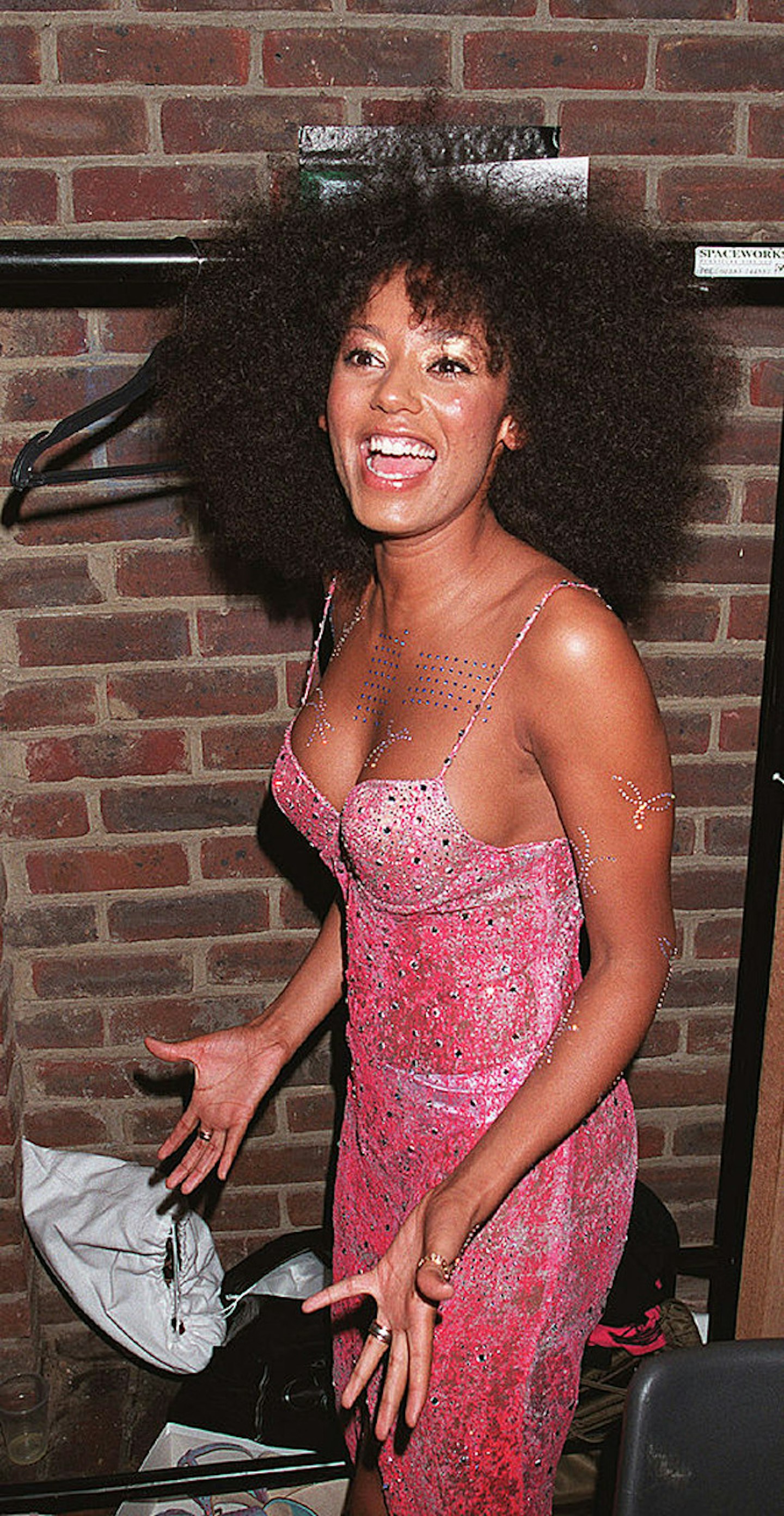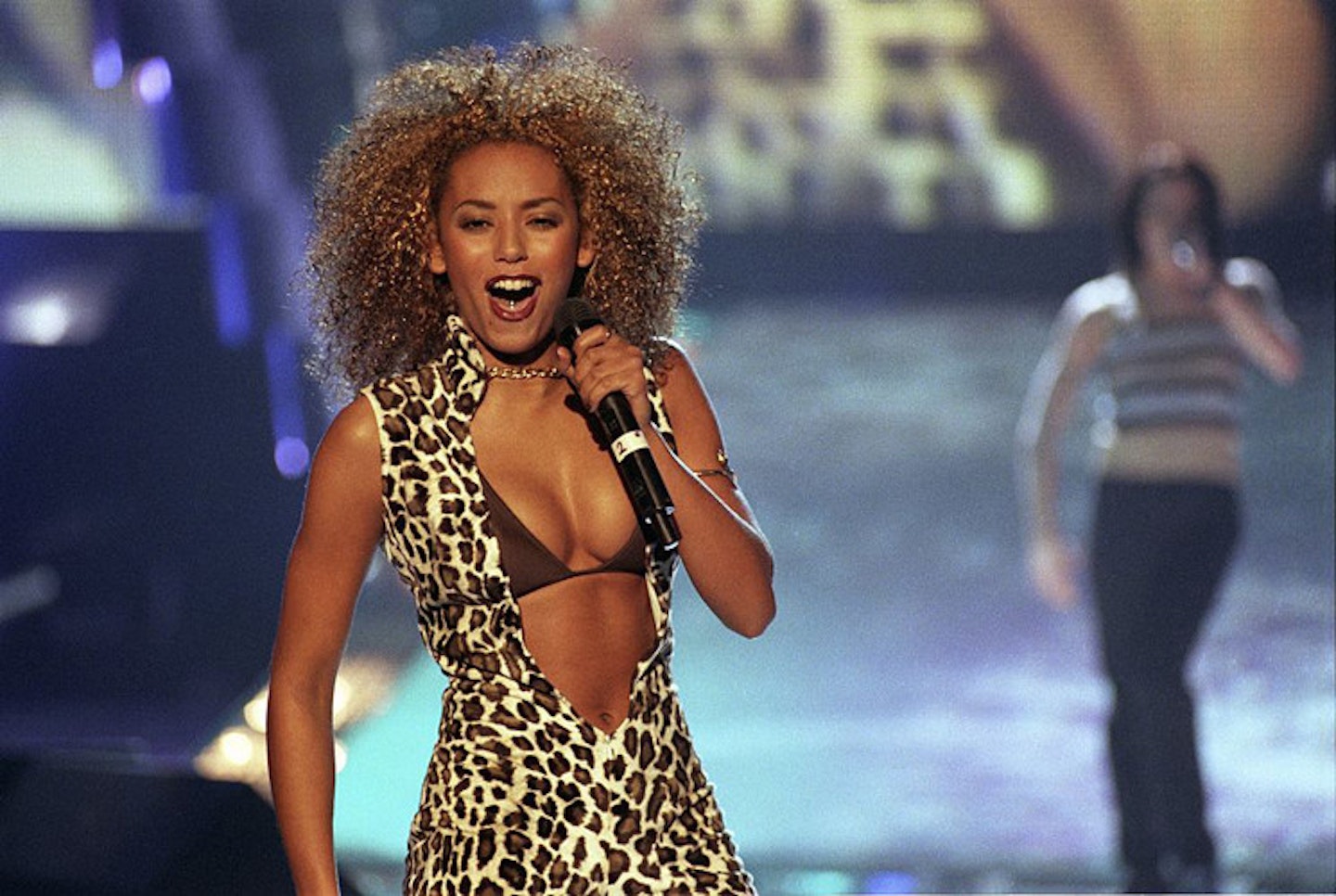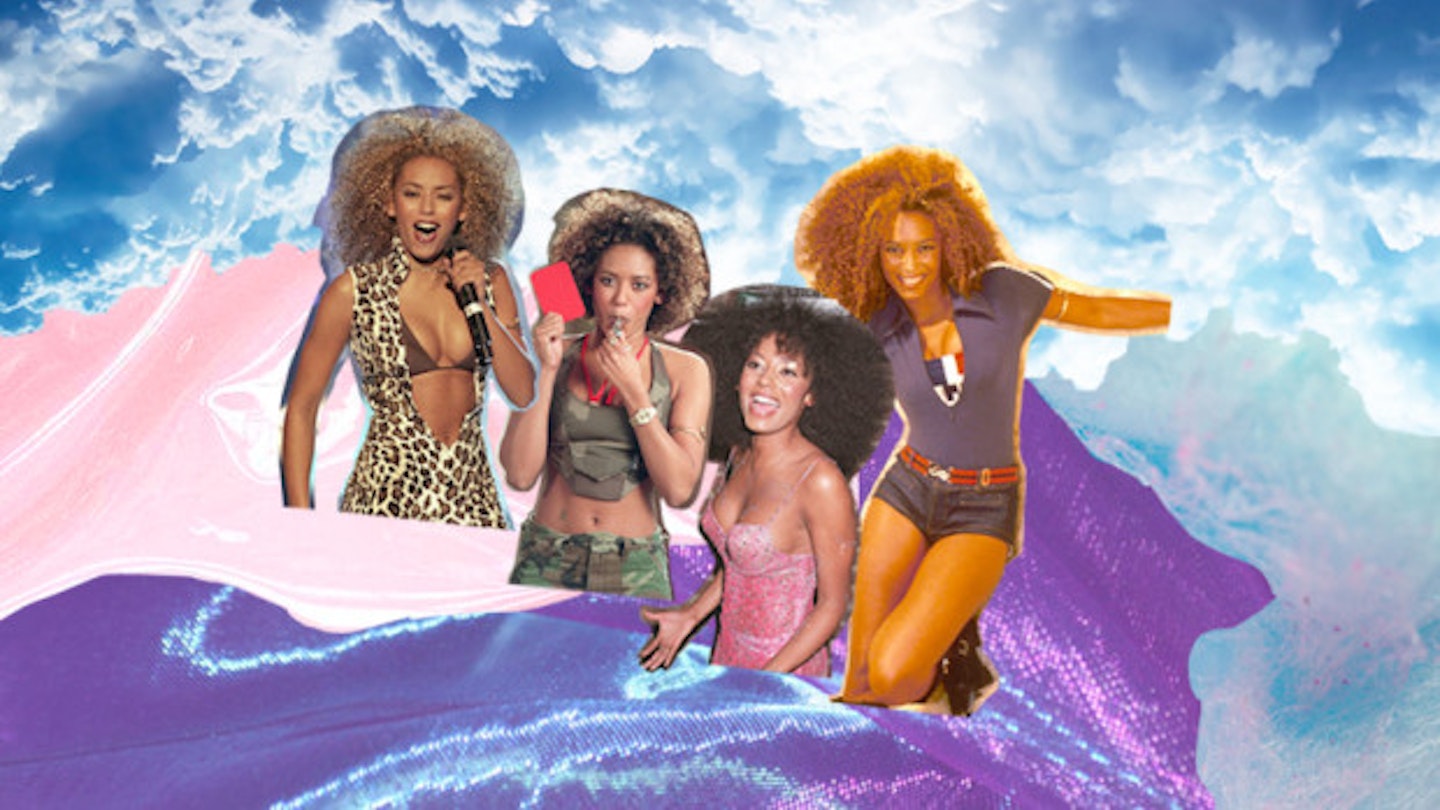IMHO the 90s are responsible for some of the best moments in pop culture, I challenge you to disagree. After school evenings were filled with episodes of The Simpsons, Fresh Prince and Friends. Fashion was at its peak, with Baby G watches, chokers, pedal pushers and denim jackets serving as style staples.
90s music lives on: TLC, Backstreet Boys, Mark Morrison and Whigfield, to name a few. Walk into any club today and you’re disappointed if No Scrubs isn’t on the playlist.
There’s so much to get nostalgic about but it’s the Spice Girls which really send tingles down my spine. The five-piece dominated the decade with their perfect pop sound, endless range of merchandise, film, Impulse body sprays, Pepsi collab and of course, their own brand of feminism - Girl Power.
I can remember the first time I saw the Wannabe video. I immediately tried to copy Mel’s B 'zig-ah-zig ahhh' leg moves and was told off by my mum for wanting to replicate Mel C’s backflip on our dining room table. When watching Wannabe, I couldn’t put into words this unexplainable feeling of seeing five very different, but very rebellious girls trash a fancy dinner party. I guess, I could feel what every girl felt when they watched the music video. The Spice Girls were starting a movement and I desperately wanted to be part of it.

Everyone had a personal favourite, always for good reason. For me it was Mel B who’s praises I sang on the regular, (pun intended). She was more than my favourite band member: she represented me. Sure, our skin tones are far apart and yes, my curls are tighter, but finally there was pop star, a black British pop star, who was also a global superstar and because of her I, a six-year-old with an afro and skinny ankles could join in when friends wanted to play pretend pop stars in the playground.
All five spices deserve their place in the entertainment history books. For me, though, Melanie Janine Brown, occupies a more unique and often overlooked position: the most important black British woman in popular culture. Yes, that’s a pretty big statement and some may disagree. But you can’t disagree with the fact that she’s sold over 80 million records as part of the Spice Girls, making her one fifth of the biggest selling girl band EVER. However, it’s not just her Spice Girl success that earns her that title, it’s the way she achieved that success.
In the last five or so years, the hair industry and its relationship with afro hair types has changed dramatically. The natural hair movement has empowered black women to reject beauty ideals which placed white, straight, silky hair as the only acceptable and aspirational hair type to have. This seachange, in part driven by the visibility of women like Mel B sporting natural hair, forced hair brands and beauty suppliers to meet our needs too
Long before the internet invaded our lives, Mel B cemented herself as an OG in the natural hair game, as one of the few black pop stars - British or American, who wore her afro throughout the 90s. There was no one in the music scene that was rocking their 'fro with as much confidence as Mel B.
Even Beyonce, our current crown holder of pop, only recently made a statement about hair, after nearly 20 years in the industry. Through the Formation lyrics: 'I like my baby heir, with baby hair and afro' and sporting an afro-textured hair extensions towards the end of the video, unlike Mel, Beyonce used her afro to publicly reclaim her black identity after years of usually sporting straight weaves. Whereas Mel never had to use her afro to reclaim, or remind people of blackness, because from the start of her career, she refused to surrender to white beauty standards.
Arguably, Melanie’s curls were more socially acceptable than mine, because they were looser and showed traces of her white heritage, but this doesn’t detract from the statement that she made with her mane. Standing next to four white women with blonde, brunette and ginger straight hair, Mel B told fans and critics alike that she was unprepared to embrace relaxers and straight extensions in order to dilute a visible part of her black identity, without having to say a thing.

In early Spice Girls videos such as* Wannabe* and Say You’ll Be There, she wore shoulder length curls. When the group returned with their anthem Spice Up Your Life video, her afro was at its biggest and longest. At that point, Mel B had achieved world domination with her without compromising her blackness. She was visually representing a different and very underrepresented type of girl power.
It was her hair choice in the Stop video which made the biggest statement of all. The video was set in 1950s England, a time when contemporary black women of the era wore short-ish straight wigs, to follow the rigid beauty rules of the decade. Mel B burst onto the mid-century set wearing her most unapologetic black hairstyle to date: a chunky cornrow up-do, making the statement that in fictional music videos or in real life shoots, she had no plans to assimilate or have matching hairstyles with her caucasian band mates.
Mel B’s nickname Scary Spice was no doubt born out of sheer laziness, as most black women can probably remember a time when someone has branded them the 'angry black woman,' or some other equally unfair version of the cruel stereotype. Instead of being held ransom by this portrayal which all too often limits the success of black women, Mel B played up to the image. She was outspoken, loud and unapologetic about her personality. She refused to be silenced by a stereotype.
Too many black women are held back by the ‘angry black woman’ trope, while many more (understandably) do everything in their power not to be associated with the image. In order to achieve and maintain success, Mel B flipped the narrative on its head. She boldly confronted and, to an extent, embraced the stereotype with her actions achieving career success and financial wealth like no other black British female entertainer before or after her, with possibly the exception of 80’s black pop star Neneh Cherry.
What made Mel’s outspoken nature even more significant, was her stark contrast to the black British female singers of the time. From black girl bands such as Honeyz and Eternal who projected a sweet, at times submissive and at times sexy image. To black signers such Gabrielle, M People’s Heather Small and Shaznay Lewis, who always seemed soft spoken and to an extent measured in interviews, compared Mel who wasn’t afraid to speak her mind and at times even snap back at presenters.
Her confrontation of stereotypes didn't end with the angry black woman narrative. Through her fashion choices, she put two fingers up to respectability politics that often pigeon hole black women. While her risqué fashion choices of low cut tops, push up bras and short skirts were clearly not an attempt to overturn the stereotype of the hyper sexualised black woman, through fashion she asked an important question: why should black women have to overturn this stereotype in order to achieve success? She confidently embraced every part of her black body and told black women that we should not have to abide by unfair rules that push us to hide our bodies in shame or in fear of being shamed by society.
It's hard to believe that Wannabe was released 20 years ago, but what's harder to believe is that amongst black feminists, especially the black British feminist movement, Mel B's impact and achievements aren’t discussed more. She may never have released a black feminist masterpiece such as Lauryn Hill’s The Miseducation of Lauryn Hill, but did something just as significant. 20 years ago, when social media didn’t provide a community for black women to support each other across wide oceans and different cities, in moments when our blackness was criticised and condemned, Mel B stood firm and refused to deliver a palatable version of blackness in order to achieve success. From the offset of the Spice Girls' career, she embraced her blackness and refused to shy away from stereotypes.
Many may argue that the privilege of her four white women helped her achieve success and maybe that's a valid point. However, her blackness and her unwillingness to compromise on her blackness didn't limit or hinder the band's success either. Mel didn't say outright that she was representing a different type of girl power, she didn't need to. Her actions spoke much louder than her song lyrics. Those rule breaking and defiant actions as a successful black British entertainer make her a significant figure; if not, the most important black British woman in popular culture.
Like this? You might also be interested in:
We Should All Applaud Rihanna For Rejecting Drake Live Onstage
Follow Tobi on Twitter @iamtobioredein
This article originally appeared on The Debrief.
